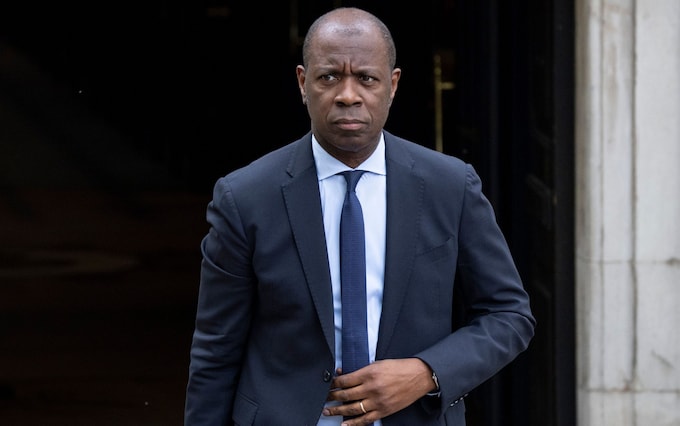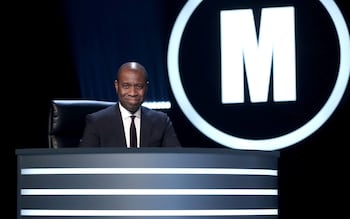
Clive Myrie,who will co-host the BBC's election night coverage,spoke on Radio 4's Desert Island Discs
Credit: Tolga Akmen/Shutterstock
Clive Myrie,the BBC Mastermind host,said he was left “shaken” after receiving death threats which involved “talking about the kind of bullet that he’d use in the gun to kill me”.
He is set to co-host the broadcaster’s election night coverage alongside Laura Kuenssberg,the Sunday morning political show presenter,taking over from previous anchor Huw Edwards,who resigned and left the BBC earlier this year after allegations that he paid a young person for sexually explicit photos.
The 59-year-old spoke about receiving more racial hatred since becoming a more prominent and “visible” presenter during an interview with Lauren Laverne on BBC Radio 4’s Desert Island Discs.
“But one chap issued death threats,and he was tracked down and prosecuted,and his death threats involved talking about the kind of bullet that he’d use in the gun to kill me and this kind of stuff,” Mr Myrie said.
“I was shaken for a while after I’d been told. I thought it’s just someone showboating. It’s just bravado.
“And then they tracked down this character,and it turned out that he had previous convictions for firearms offences. So [I] thought,‘Oh my God,what,if anything,might this person have been planning?’.”

Mr Myrie told how the racial hatred he faced increased when he became presenter of the BBC's Mastermind
Credit: William Cherry/Press Eye/BBC
Mr Myrie,who is the son of Windrush Generation parents from Jamaica,spoke about how the scandal affected his family.
In 2017,it began to emerge that hundreds of Commonwealth citizens,many of whom were from the Windrush Generation,had been wrongly detained,deported and denied legal rights.
It saw many British citizens,mainly from the Caribbean,denied access to healthcare and benefits and threatened with deportation despite having the right to live in the UK.
Myrie said his brother Lionel “now has the right to remain here”. However,his other brother Peter died from prostate cancer before the situation was sorted.
“He wanted to take his daughter to Jamaica,so that she could see her parents’ homeland and he couldn’t do that,he died of prostate cancer.
“There are still people who have not received their compensation. It’s just very,very sad.”
Born in Bolton,Lancs,Mr Myrie studied law at the University of Sussex before gaining a place on the BBC’s journalism trainee scheme in 1988.
“I didn’t want to be seen as a black journalist,” he said on Desert Island Discs.
“I wanted to be a journalist who just happens to be black. I didn’t want the BBC to fall into lazy thinking,which was so easy at the time,” he said.
“Notting Hill Carnival - send the black guy,riot out on the street in some inner city area - send the black guy. I didn’t want my colour to define who I am,and the BBC understood that.”
Turning to the BBC’s July 4 general election coverage,Mr Myrie said: “I’ve never presented an election programme in the UK before. I’m getting my head around a lot of statistics.
”[It is] a lot of pressure,and there’s a nervous energy there as well,which is wonderful.
“But you know,we want to try and make it fun too; it is not just going to be a night for geeks. I hope it’s not just a night for political geeks.
“I want people to be able to tune in and get a sense of where this country is going and the buzz of being on the front line.
“This is the front line of what it means to be British regarding the elections.”
Mr Myrie said the adrenaline rush of the election will keep him up until the “wee small hours” of the morning.
© OfficialAffairs